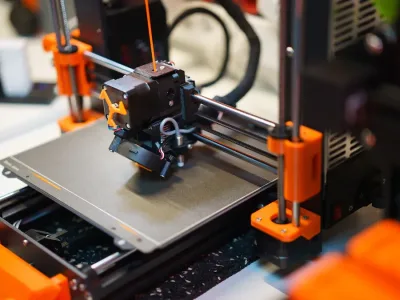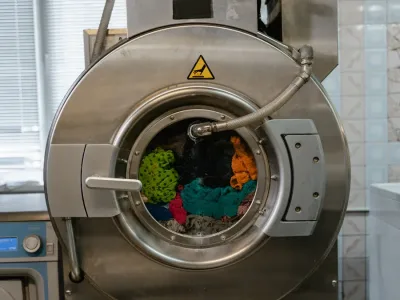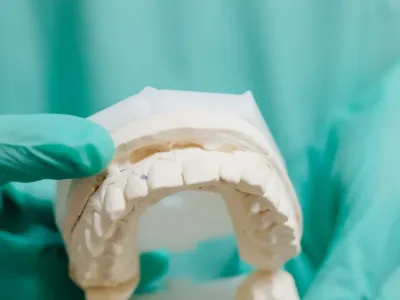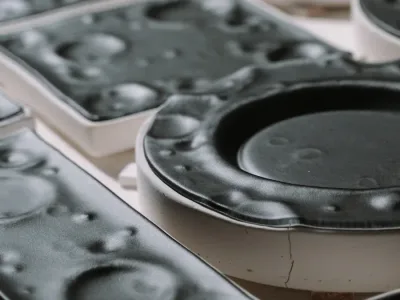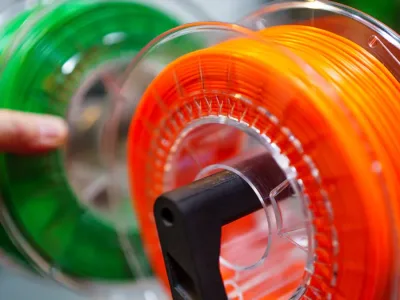
Polyurethane resin is a polyurethane resin strong and long-lasting material. It works well for many applications, handling heat up to 180 °C and pressure up to 350 bar. It resists damage from wear, scratches, chemicals, and weather. Even with 20% recycled material, it remains tough. Its flexibility and protective traits make it ideal for industrial, commercial, and DIY projects.
Key Takeaways
Polyurethane resin is tough and bendable, perfect for many uses like factory floors and protective layers.
It handles heat and heavy weight, showing it lasts in tough places.
Polyurethane resin fights damage from wear, chemicals, and sunlight, working well indoors and outdoors.
Taking care of it and picking the right kind can make it last much longer.
Polyurethane resin is stronger and more flexible than other materials, making it a smart and affordable choice for businesses.
Physical Strength of Polyurethane Resin
Tensile Strength
Polyurethane resin is very strong when stretched. This makes it great for projects needing both strength and flexibility. Tensile strength means how much pulling force a material can handle before breaking. Tests show that polyurethane resin stretches a lot before snapping. For example:
A piece starting at 80 mm stretched to about 486 mm before breaking.
It stretched up to 600% under a pressure of 18.5 MPa.
The results were consistent, with only a 5% variation in data.
This mix of flexibility and strength helps it stay intact under stress. Whether for molds or protective layers, its tensile strength ensures it lasts a long time.
Compressive Strength
Polyurethane resin is also strong when squeezed. This is called compressive strength, which measures how much force it can take without being crushed. Tests using ASTM C 39 standards showed impressive results:
Test Type | Method Used | Results Summary |
|---|---|---|
Compressive Strength | Tested with a machine applying force at 1 mm/min. | Average strength calculated from three samples of each mixture. |
It also performs well in other areas like maximum stress, stress at 10% deformation, and stiffness:
Metric | What It Means |
|---|---|
The most pressure it can handle before breaking during squeezing tests. | |
Stress at 10% Deformation (σ10) | The pressure level when the material is squished by 10%. |
Compressive Modulus (E) | How stiff the material is, based on the slope of the stress-strain graph. |
These qualities make it perfect for holding heavy loads without cracking or bending.
Load-Bearing Capacity
Polyurethane resin can hold a lot of weight without losing shape. Tests show it works well for supporting heavy loads. For example:
Test Type | Improvement (%) | Depth (m) |
|---|---|---|
Dynamic Cone Penetration Test | N/A | |
Modulus of Subgrade Reaction | 50 to 90 | N/A |
Bearing Capacity Increase | 67 to 125 | 0.4 to 1.1 |
Deformation Modulus Increase | 55 to 203 | 0.4 to 1.1 |
These results prove it can handle heavy-duty tasks. It’s great for industrial floors, building supports, and other tough jobs. Its strength under pressure makes it a dependable choice for projects needing high load capacity.
Durability of Polyurethane Resin
Resistance to Wear and Abrasion
Polyurethane resin is very tough against wear and scratches. It works well in places with lots of rubbing or rough use. Tests show how strong it is:
ASTM Test Code | How the Test Works | Type of Abrasion |
|---|---|---|
ASTM D1630 | Uses a footwear tool to test two-body abrasion | Two-body |
ASTM D5963 | Uses a spinning drum to test two-body abrasion | Two-body |
ASTM G65 | Uses dry sand and a rubber wheel for three-body wear | Three-body |
ASTM G105 | Uses wet sand and a rubber wheel for three-body wear | Three-body |
Polyurethane resin beats materials like metal, plastic, and rubber in these tests. For example, polyester-based polyurethane lasts longer than D2 tool steel. It also outperforms ultra-high molecular weight polyethylene (UHMW PE) and harder polyether-based polyurethane. These features help it stay strong even in tough conditions.
Environmental Resistance (UV, Chemicals, Temperature)
Polyurethane resin can handle sunlight, chemicals, and heat. This makes it great for both indoor and outdoor use.
UV Resistance: Sunlight can cause fading, so UV blockers are added. Polyether systems resist UV damage better than polyester ones.
Chemical Resistance: It stands up to many chemicals. Polyether systems are better for long-term water use, while polyester systems handle oils and solvents well.
Temperature Resistance: It works in a wide range of temperatures:
System Type | Operating Temperature (°F) |
|---|---|
Medium Performance Polyether | 170 |
Premium Performance Polyester | 170 |
Premium Performance Polyether | 170 - 210 |
High-Temperature Polyether | 250 |
Ultra-High-Temperature Polyether | 400 |
These traits help polyurethane resin stay strong in different settings. But too much sunlight or chemical exposure can weaken it over time.
Longevity and Maintenance
Polyurethane resin lasts a long time, even in harsh conditions. Tests show it keeps about 70% of its strength after one year. After 16 days of UV testing, its strength dropped by 23.8%. But after 12 days, it bounced back to 85.6% of its original strength.
Long-term studies found E-glass/polyurethane composites lost 34% strength after five years in seawater. Factors like heat, water exposure, and moisture absorption affect its lifespan:
Factor | How It Affects Durability and Care |
|---|---|
Aging Temperature | Changes how it handles stress and absorbs water. |
Immersion Duration | Affects how much water it soaks up and how fast it wears out. |
Moisture Absorption | Causes swelling and damage, lowering its overall lifespan. |
To keep it strong, pick the right type for your environment. Regular checks and care can make it last even longer.
Uses That Show Polyurethane Resin's Strength
Strong Floors and Coatings
Polyurethane resin is great for industrial floors and coatings. It is used in places like car factories and warehouses. These areas need floors that handle heavy loads and wear. Polyurethane resin cures quickly and lasts a long time. This makes it perfect for new floors or fixing old ones.
A report shows industries love its strength and easy use. For example:
Feature | Details |
|---|---|
Resin Types | |
Where It's Used | Car factories and drug companies use it for tough floors. |
Installation Benefits | Quick curing means less downtime during repairs. |
This makes polyurethane resin great for busy areas. It stays strong even with heavy use.
Making Molds and Castings
Polyurethane resin is perfect for making molds and castings. It is both strong and flexible. You can use it for detailed molds or tough castings. Its stretchiness and strength make it good for precise designs.
A study shows biobased polyurethane resin is very strong. For example, BIO-PUR has a modulus of 35 GPa and flexural strength of 1000 MPa. This makes it great for car parts and other structures. EPU 41 is also strong and stretchy, making it good for cushions and other uses.
Whether for art or industry, polyurethane resin works well. It is strong and flexible, making it a top choice for casting projects.
Surface Protection Coatings
Polyurethane resin protects surfaces from damage, chemicals, and weather. It is used on machines, cars, and buildings. It resists scratches and tough conditions, lasting a long time.
Studies prove its strength in coatings. For example:
Coating Type | Key Results |
|---|---|
Solvent-Based PU | Found HDI monomer and breakdown products, showing its durability. |
Water-Based PU | Blocking agents improve stability for steady performance. |
These studies show polyurethane resin coatings stay strong in hard conditions. They protect machines and outdoor surfaces well. This makes them a reliable choice for long-lasting protection.
Comparing Polyurethane Resin to Other Materials
Polyurethane Resin vs. Epoxy Resin
Polyurethane resin and epoxy resin work differently in various tasks. Polyurethane resin is more flexible, so it handles impacts better. This makes it great for projects needing stretch and toughness. Epoxy resin is harder and stronger, perfect for bonding and tough coatings.
Studies show how they differ in certain uses:
Material Comparison | Findings |
|---|---|
Epoxy Resin vs. Rigid Polyurethane Foam | Shows how polyurethane works in biomechanics. |
Polyurethane vs. Type IV Dental Stone | Explains differences in fit for gold castings. |
Polyurethane resin is better for moving parts or rough use. Epoxy resin is best for still objects needing strength.
Polyurethane Resin vs. Polyester Resin
Polyurethane resin is stronger than polyester resin in many ways. It bends better, lasting longer under pressure. It also stretches more, making it less likely to break.
Here are some key differences:
Polyurethane needs 40% more force to remove screws than polyester.
It cures faster, taking 20 minutes, while polyester takes 2–4 hours.
Polyurethane handles heavy loads better, making it ideal for tough jobs.
These features make polyurethane resin a top pick for strong and flexible projects.
Advantages of Polyurethane Resin Over Other Materials
Polyurethane resin beats rubber, metal, and plastic in many areas. It is strong, flexible, and affordable, making it useful for many industries.
Advantage | Polyurethane | Rubber | Metal | Plastic |
|---|---|---|---|---|
Abrasion Resistance | High | High | Medium | Medium |
Tear Resistance | High | Medium | Low | Low |
Load Bearing Capacity | Excellent | Medium | High | Medium |
Flexibility | Great | Medium | Low | Medium |
Corrosion Resistance | Good | Low | High | Medium |
Production Lead Time | Short | Medium | Long | Medium |
Cost Efficiency | Affordable | Medium | Expensive | Low |
Polyurethane resin is tough, lasts long, and saves money. It works well under stress and resists damage, making it reliable for many uses.
Polyurethane resin is a strong and adaptable material. It is used for things like industrial floors and protective coatings. It can replace materials such as PVC, rubber, and leather. Soft foams make mattresses and car seats more comfortable. Hard foams help insulate buildings and refrigerators. CASEs (Coatings, Adhesives, Sealants, Elastomers) show its toughness in sports tracks, electronics, and ships. It resists damage from oils, solvents, and organic chemicals. Its water-based coatings lower harmful emissions, making it safer to use.
FAQ
Why does polyurethane resin resist chemicals?
Polyurethane resin resists chemicals because of its special structure. It can handle oils, solvents, and organic substances. This makes it useful in tough places like factories and outdoor areas.
Can polyurethane resin survive extreme temperatures?
Yes, polyurethane resin works well in very hot or cold weather. It stays strong and resists chemicals, making it great for insulation and coatings.
How does polyurethane resin last compared to other materials?
Polyurethane resin lasts longer than rubber and plastic. It resists scratches and chemicals, staying strong under pressure. It’s perfect for projects needing durability and little upkeep.
Is polyurethane resin good for outdoor use?
Polyurethane resin is great outdoors. It resists UV rays, moisture, and chemicals. You can use it for floors, coatings, and other weather-exposed jobs.
Which industries use polyurethane resin the most?
Industries like car-making, construction, and manufacturing use polyurethane resin. Its toughness and chemical resistance make it ideal for floors, molds, and protective layers.
 LKprototype
LKprototype

